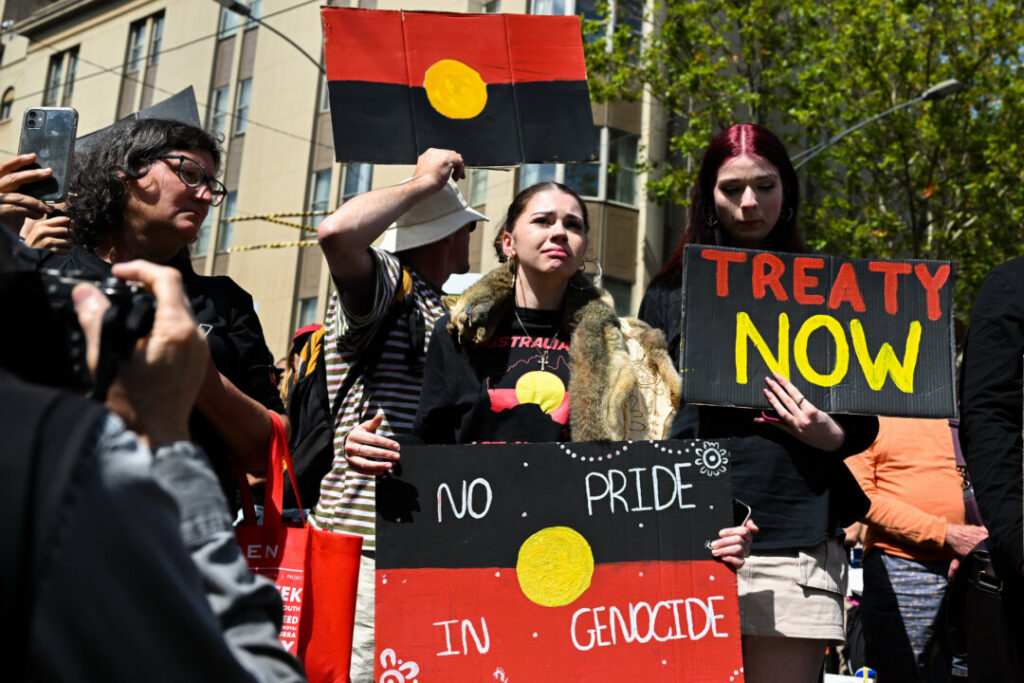
MELBOURNE, AUSTRALIA - JANUARY 26: Protesters participate in the Treaty Before Voice Invasion Day Protest outside Parliament House on January 26, 2023 in Melbourne, Australia. Australia Day, formerly known as Foundation Day, is the official national day of Australia and is celebrated annually on January 26 to commemorate the arrival of the First Fleet to Sydney in 1788. Many indigenous Australians refer to the day as 'Invasion Day' and there is a growing movement to change the date to one which can be celebrated by all Australians. (Photo by Alexi J. Rosenfeld/Getty Images)
The Public Health Association of Australia (PHAA) has officially established an Indigenous governance model, referred to as an Indigenous “voice,” to enhance decision-making within the organization. This significant move, endorsed by over 2,000 members, marks a pivotal step for the PHAA in its commitment to inclusive public health advocacy and policy development.
The proposal, known as the First Nations Collective Co-Design Project, received overwhelming support during a recent vote to amend the PHAA’s constitution. The initiative aims to ensure that Indigenous perspectives are integrated into the organization’s operations and decision-making processes.
Leading this transformative effort is Dr. Alana Gall, former vice president of the PHAA and a prominent Indigenous health advocate. Dr. Gall, who is affiliated with Southern Cross University, worked alongside nine other Indigenous volunteers for two years to develop the governance model. She highlighted the dedication and collaborative spirit that drove the project, stating, “A huge amount of work by myself and nine other Indigenous people—all volunteers—went into the two-year project to co-design the Indigenous governance model for the PHAA Collective.”
The formation of this Indigenous voice is viewed as a critical advancement in the representation of Aboriginal and Torres Strait Islander peoples in public health discussions. By facilitating a platform for Indigenous leaders, researchers, and practitioners, the PHAA aims to better address the unique health challenges faced by these communities.
The decision reflects a growing recognition of the need for culturally appropriate health services and policies that resonate with Indigenous populations. As the PHAA continues to expand its role in public health advocacy, the establishment of an Indigenous voice is expected to lead to more informed and equitable health outcomes.
The initiative also aligns with broader national conversations surrounding reconciliation and Indigenous rights in Australia, echoing the sentiments expressed in various reports and studies emphasizing the importance of Indigenous involvement in health planning and policy-making.
As the PHAA moves forward with this governance model, it is poised to set a precedent in the public health sector. The integration of Indigenous perspectives not only underscores the importance of inclusivity but also reinforces the commitment to improving health equity across Australia.
This landmark decision is a testament to the power of collaboration and the vital role that Indigenous voices play in shaping the future of public health in Australia. The PHAA is optimistic that this new governance structure will not only enhance its internal operations but will also serve as a model for other organizations seeking to engage Indigenous communities meaningfully.







